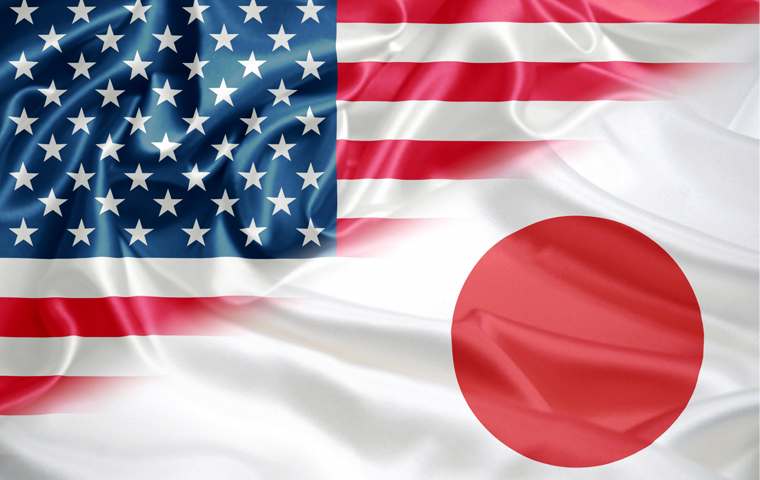The Fight against Rinderpest Offers Clues on Conquering Viruses
Related Articles

Introduction
It appears that realism—a view based on the assumption that states aim to maximize their own national interests in an international community where there is no world government—has never been as useful as it is when looking at the COVID-19 responses of each country. For example, countries rushed to secure and stockpile COVID-19 vaccines, each focused on domestically containing the virus.
At the same time, if one takes a closer look at the international community, one will notice that the situation is not as pessimistic as realism assumes. The World Health Organization (WHO) successfully formed the COVAX facility, the first-ever framework for equitable access to vaccines, and as much criticism as the WHO receives, its existence means something.
What is the secret to solving global issues in an international community that bases itself on realism? If there are historical examples of the world succeeding in eradicating viruses, what were the factors that contributed to its victory?
The Rinderpest Campaigns: A Virus, Its Vaccines, and Global Development in the Twentieth Century by Amanda Kay McVetty, a researcher who teaches at Miami University, is a book that provides many hints for these questions that have gripped us daily amidst the pandemic. It is a research book that exhaustively examines primary historical sources from relevant countries and international organizations. First published in 2018, it is a book that is more so relevant today.
The Fight against Rinderpest
Rinderpest—also known as cattle plague—is a disease caused by the rinderpest virus. Cattle have long been a source of food, labor, wealth, and security for human beings. Thus, rinderpest not only destroys cattle but inflicts damage to human society and the world economy. From the 19th century onwards, as the rinderpest virus spread outside Europe with the expansion of trade and colonialism, economic concerns prompted cooperation among European powers. In 1924, the imperial powers formed OIE (the World Organization for Animal Health).
Japan was also heavily involved in the fight against rinderpest. During Japan’s colonial rule, Manchuria had many cattle and frequent animal disease outbreaks. Therefore, Japanese researchers developed a rinderpest vaccine, and in 1918 the results were published in English and shared internationally. I would point out the move was greatly encouraged by the scientific internationalism of the time.
However, after World War II began, international cooperation to counter rinderpest became somewhat fragmented. The Japanese government began to attempt to use the rinderpest virus for military purposes. North America supplied food to the Allies at the time, so the impact would have been devastating if Japan had indeed used biological weapons against the U.S. The Allies, concerned about the possibility of Japan maliciously dispersing the rinderpest virus, proceeded with research and development to prepare for a biological attack. Fortunately, there were no such attacks during World War II, but the Allies preserved the vaccines and the virus used in the vaccines, as they believed rinderpest continued to pose a threat to food security.
The United Nations Food and Agriculture Organization of the United Nations (FAO), founded in 1945, has made the fight against rinderpest central to its mission to fight hunger. The U.S., who led the establishment of FAO, had expectations based on functionalism that if international cooperation leaps benefits in the fight against the virus, this would not only help deal with the virus but also lead to fewer countries turning to isolationism and war.
The founding of FAO marked a major turning point in the fight against rinderpest. As this book shows, international cooperation is more likely to develop when there is a common enemy of mankind. At the same time, the virus as a common enemy, while encouraging cross-border cooperation, can also be used as a weapon to attack other countries. That is why an international framework was needed to reconcile such duality. The emergence of FAO as a non-state administrative agency to implement systematic veterinary activities and preventive measures has given a great impetus to the fight against rinderpest.
On the other hand, international organizations could never be free from the power game of international politics. In fact, the FAO faced various obstacles from European imperial powers who wanted to respond to the rinderpest problem in Africa on their own terms. Meanwhile, the U.S. positioned rinderpest as part of its Cold War strategy and supported the FAO in many ways. Ultimately, an international organization is a product of compromise in the international community which cannot create a world government and since its inception, it has faced various limitations. Despite this, the FAO with much ingenuity found its way to continue to fight rinderpest. In 2011 the FAO declared the eradication of the disease.

Currently, the rinderpest virus is stored in five designated facilities, including in Japan. Outside of the designated countries, several countries, including Russia, have the virus stored in laboratories within their territories. Whether the virus can be kept under control depends on continued international cooperation and surveillance.
Two Elements Necessary for Functioning International Cooperation
In contrast to the fight against rinderpest, the COVID-19 pandemic underscored clashes among countries rather than cooperation. After March 2020, when the number of infected people in the U.S. surged, President Trump stepped up his rhetoric against China, the country where the outbreak first occurred, and against the WHO, which was friendly with China.
Even after the Biden administration took over, the U.S.-China standoff over health cooperation showed no signs of resolving. In fact, disagreements between the U.S. and China are continuing over the source investigation in China, which was conducted from the end of January to the beginning of February 2021.
As the history of the fight against rinderpest shows, there are two essential elements for international cooperation to work in a realist-based international community. The first is the willingness of the states, regardless of their motives, to unite against the common enemy—the virus. The progress in the fight against rinderpest was supported by the functional integration of European imperial powers at the end of the 19th century, scientific internationalism after World War I, functionalism during and after World War II, and the U.S. Cold War strategy.
In contrast, when the COVID-19 pandemic began, Donald Trump, who put “America First” and turned his back on international cooperation, was the president of the U.S. and the U.S.-China relationship was at a historical low over technological hegemony and trade. Since the first known COVID-19 outbreak was in China, the U.S. and China sparked off each other over the origins of the virus.
The second element necessary for international cooperation to function is the efforts and creativity on the part of the international organization. The FAO’s role in the fight against rinderpest is presented in the book, and the fight against smallpox and polio was underpinned by WHO’s scrupulous attention to the U.S. and the Soviet Union.
Regarding COVID-19, the WHO should have made an appropriate assessment of the situation, issued recommendations to each country, and taken the lead in controlling the virus. Furthermore, given the conflict between the U.S. and China, the WHO should have been more equal in its treatment of the two countries. However, the WHO’s response was slow, and the trust of the international community significantly waned at the initial stage. The WHO also turned the U.S. against it with its conciliatory attitude toward China. As a result, the various recommendations and calls made by the WHO to each country afterward failed to function.
However, the WHO’s poor performance was deeply related to the institutional problems of health governance that preceded COVID-19. For example, Member States must notify WHO within 24 hours if it detects an event that could lead to a “Public Health Emergency of International Concern (PHEIC).” Although this is mandated under the International Health Regulations (IHR), there are currently no provisions regarding penalties for countries for failing to comply with such obligations or the mandatory authority of the WHO to enforce this requirement. In addition, regarding infectious diseases other than influenza, there is only a binary evaluation standard of whether to declare PHEIC or not and this lack of a system for pluralistic assessment standards contributed to the failure of the WHO to appropriately guide each country in its initial response.
How to Win the Fight against COVID-19
International cooperation is essential to control viruses, as indicated in the historic fights against infectious diseases such as smallpox, polio, and AIDS. As for COVID-19, several studies have shown simulation results indicating that achieving equitable access to vaccines will lead to an earlier containment of the epidemic and less damage to the global economic recovery. Even if we continue to ignore the current disparities in access to vaccines and each country takes self-serving measures, the infection will likely eventually subside once there is herd immunity. However, until the world reaches that point, many lives will be lost and there will be great social and economic damage. International cooperation is necessary to minimize such loss and damage and to contain the virus as soon as possible. Moreover, to prepare for the next pandemic, it will be necessary for countries to work together to put appropriate systems in place.
There are signs that tensions between the U.S. and China will continue over the proposed WHO reforms as well as the origins of the coronavirus. Even under such circumstances, it is not impossible to devise efforts to advance cooperation. In fact, despite the confrontation between the U.S. and China, some progress has been made through the solidarity of other developed countries. The G7 has been holding discussions on the WHO reform since April 2020, with Germany and France proposing a plan at the WHO General Assembly last autumn. The COVAX Facility for Equitable Access to Vaccines has attracted substantial funding, even in the absence of support from the U.S. and China. European countries and Japan will do well to continue to lead the world in the efforts to advance international cooperation to end the pandemic while mitigating the impact of the U.S.-China conflict.
As I mentioned at the beginning, states are fundamentally selfish in nature. In the face of a crisis, it is rather natural for countries to have strong defensive reactions and rush to secure their national interests. At the same time, in today’s globalized world, individual national interests are closely intertwined with developments around the world. More than ever, nations need to come to terms with this reality with a view to striking a balance between national interests and the international public good. In addition, precisely because states are selfish, it is necessary for international organizations to lead the way to realize international public interest from a standpoint that is different from that of states.
Looking back, past crises such as cholera in the 19th century, the Spanish flu during World War I, AIDS, and SARS have served as opportunities to reform the system of international cooperation. Outdated systems need to be updated to suit the times. It will require the enthusiasm and political leadership of the members of the international community to put this into practice.
This is a translation of the Japanese original published in vol. 94 (May 2021) of the Asteion magazine.
Kayo Takuma is a professor at Tokyo Metropolitan University. She received her Ph.D. from the University of Tokyo. She worked as a research associate at the Department of Pan Asian Studies at the University of Tokyo and assistant professor at the Faculty of Foreign Languages at Kansai Gaidai University. She is the author of Kokusai seijino no nakano kokusai hoken jigyo [Healthcare services in international politics], Jinrui to yamai [Humankind and illnesses] among others.




